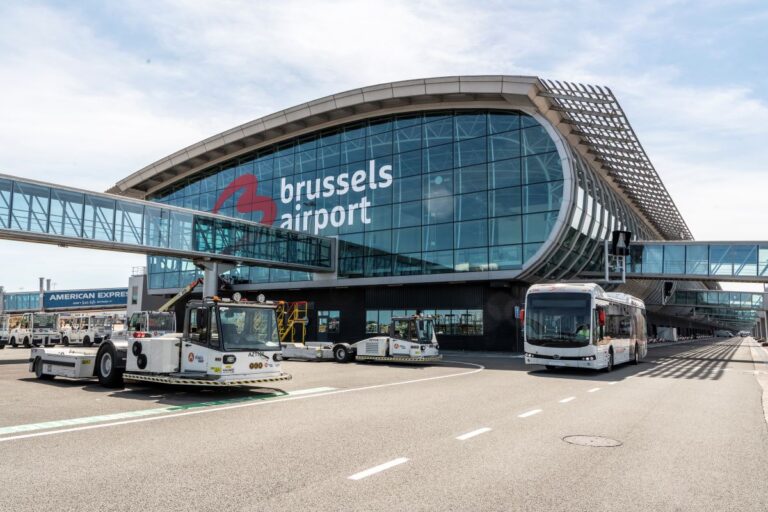IES has developed a digital twin for Brussels Airport, to demonstrate the potential of the airport’s buildings to reach net zero emissions by 2030, rather than 2050.
Sustainable digital twin
IES created a digital replica of the 40 most energy-intensive buildings at Brussels Airport before modeling scenarios such as installing PV solar and EV chargers and electrifying heating to find the most effective routes to net zero carbon emissions by 2030 for the airport.
Through modeling stages, IES simulated Brussels Airport’s plan to cut emissions across its buildings with various energy-saving measures, including replacing gas boilers with heat pumps and installing solar PV on-site. IES was able to verify the potential for up to 63% CO2 savings against the 2019 baseline year, with the modeling demonstrating that the plan is a robust decarbonization pathway. Brussels Airport is now deploying further zero-carbon energy solutions over the next six years. It is also committed to investing in additional renewable energy sources, such as solar and wind power, to be less dependent on external energy providers, meaning that the airport can be carbon-free by the end of this decade.
EU-funded Stargate initiative
The project is being delivered as part of the major EU-funded Stargate initiative, which received a €24.8m (US$26.5m) grant from the European Green Deal to develop concrete solutions to improve the sustainability of airports and aviation. Brussels Airport is taking a leading role in the Stargate project, which is being implemented alongside a consortium of 21 partners, including airports in Athens, Budapest and Toulouse, who are also collaborating with IES to develop digital twins to support their decarbonization goals.
According to the partners, the collaboration with Brussels Airport through Stargate will be one of the first examples of digital twins being deployed for decarbonization modeling at full scale at an airport – as opposed to their traditional use in experiments to optimize commercial operations.
Giulia Barbano, R&D operations manager at IES, said, “To reach net zero, we must take a holistic approach, and in this particular industry, decarbonizing buildings can help us make a positive intervention.
“Airports operate across vast space, demand large amounts of power, and experience complex energy interactions. Making any operational change is no small feat and such decisions must be backed by evidence, and that’s where digital twin technology can be a game-changer. Before deploying extensive, zero-carbon solutions, airports must first test their effects on energy, cost and carbon savings – both before installation and during live operation.
“This project is a world-first and demonstrates the effectiveness of digital twin technology in determining the future of complex sites like airports. We are proud to be a partner in this cutting-edge initiative and to work with the great team at Brussels Airport to make a positive long-term impact.”
Christel Vandenhouten, head of sustainable development at Brussels Airport, said, “The greatest challenge we face today is achieving net zero emissions. Airports can play an important role in reaching this goal. According to data from the IEA, the aviation industry accounted for 2% of global CO2 emissions in 2022, and these figures need to be kept in check as the sector returns to pre-pandemic levels.
“By deploying zero-carbon solutions within our airport buildings, promising opportunities exist to make a positive impact in reducing our scope 1 and 2 emissions. While there is still much work to be done, digital twin technology can help us simulate the impact of various net-zero solutions, so we can move forward with confidence in achieving the ambitious targets we have set.
“The funding from the EU has been critical, as well as the 30% contribution from Stargate partners as co-funding. With over 30 projects under the Stargate umbrella, it’s an investment that fosters cross-border collaboration, tackling the challenges of sustainable aviation on a global footing.”
In related news, zeroG and Brussels Airlines recently organized a two-day hackathon titled “Unlock the Power of Data” in Brussels to unlock the potential of data and artificial intelligence (AI) in the aviation industry. Click here to read the full story.

